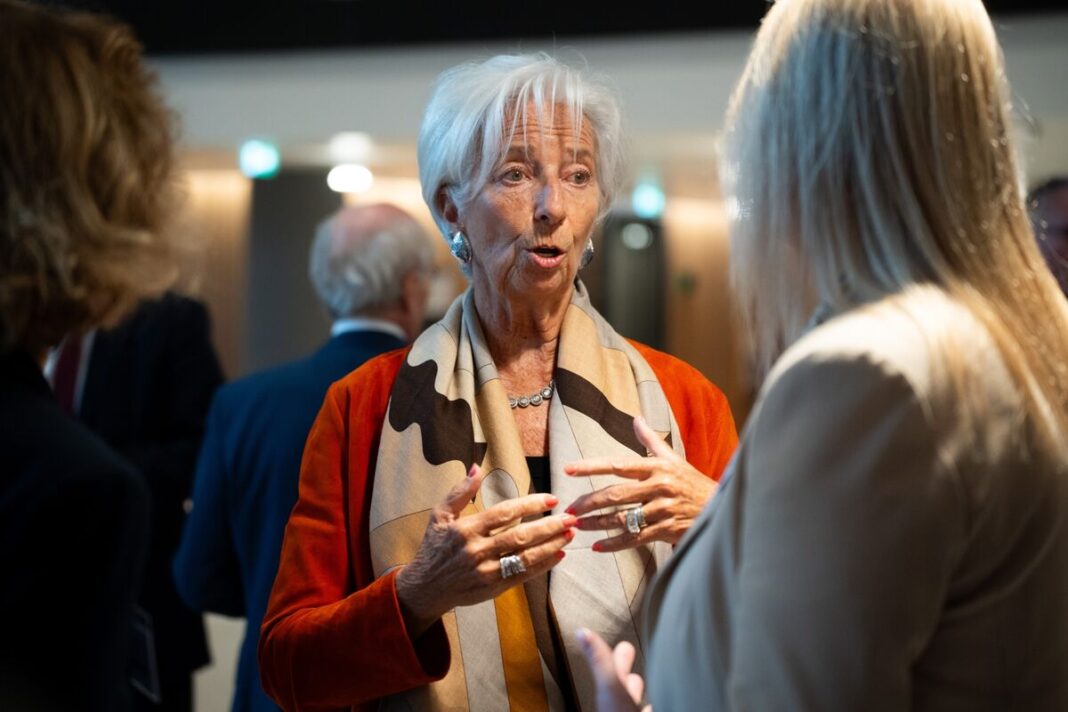Market Pulse
European Central Bank (ECB) President Christine Lagarde has issued a stark call for significantly tougher regulatory oversight of non-bank financial entities, a move widely interpreted as a direct signal to the burgeoning cryptocurrency and digital asset sector. Speaking recently, Lagarde underscored the growing systemic risks posed by these institutions, advocating for a more harmonized and rigorous supervisory framework across the European Union. This directive sends a clear message that the era of minimal oversight for many crypto-native firms may be drawing to a close, ushering in a new chapter of enhanced compliance and accountability.
Lagarde’s Stance: A Call for Unified Oversight
President Lagarde’s remarks highlight a consistent theme from global financial watchdogs: the expanding footprint of non-bank financial intermediation (NBFI) and its potential implications for overall financial stability. Historically, traditional banks have been the primary focus of stringent regulation, but the rapid growth and interconnectedness of shadow banking and digital asset firms have brought them into the crosshairs. Lagarde emphasized that a fragmented regulatory approach allows risks to accumulate outside the traditional banking system, making it harder to contain potential contagion during periods of market stress.
- Financial Stability Mandate: The ECB views comprehensive NBFI regulation as crucial to its core mandate of maintaining financial stability within the eurozone.
- Growth of Non-Banks: The non-bank sector has expanded significantly, now rivaling or even exceeding the size of the traditional banking sector in many areas of financial services.
- Harmonization Push: Lagarde advocates for consistent rules across all EU member states to prevent regulatory arbitrage and ensure a level playing field.
Direct Impact on the Crypto Ecosystem
While not exclusively naming cryptocurrency firms, the ‘non-bank financial entities’ umbrella undeniably covers a vast swathe of the digital asset industry. Most crypto exchanges, custodians, lending platforms, and other service providers operate without traditional banking licenses, placing them squarely within the scope of Lagarde’s concerns. Increased scrutiny would likely manifest as more demanding capital requirements, enhanced risk management protocols, stricter know-your-customer (KYC) and anti-money laundering (AML) checks, and more intensive ongoing supervision.
- Exchanges and Custodians: These entities, often serving as crucial gateways between fiat and crypto, would likely face heightened operational and capital adequacy standards.
- DeFi Protocols: While decentralized, interfaces and centralized components interacting with traditional finance could see increased pressure for compliance.
- Payment Providers: Crypto-enabled payment services, already under scrutiny, will likely face even more robust regulatory frameworks akin to traditional payment institutions.
Navigating the Evolving Regulatory Landscape
For crypto firms operating or seeking to operate within the European Union, Lagarde’s pronouncements reinforce the urgent need to prioritize robust compliance strategies. The EU’s landmark Markets in Crypto-Assets (MiCA) regulation, set to be fully implemented, already lays the groundwork for comprehensive oversight. However, Lagarde’s call suggests that even MiCA, or its implementation, might be viewed as a starting point rather than a final destination for regulatory stringency. Businesses must proactively assess their risk frameworks, governance structures, and internal controls to align with an anticipated era of intensified supervision.
- Proactive Compliance: Firms should not wait for specific directives but begin preparing for more rigorous regulatory environments now.
- Operational Readiness: Investing in compliance teams, technology, and legal expertise will be critical for navigating the new landscape.
- Engagement with Regulators: Active dialogue and cooperation with supervisory bodies can help shape the future of digital asset regulation in a constructive manner.
Conclusion
Christine Lagarde’s emphatic call for tougher scrutiny on non-bank financial entities is a significant indicator for the future of crypto regulation in the EU. While such measures aim to bolster financial stability and protect consumers, they simultaneously pose challenges for an industry accustomed to rapid innovation and relatively lighter regulatory burdens. Crypto firms that embrace this shift by prioritizing transparency, robust risk management, and stringent compliance are best positioned not only to survive but to thrive in a more mature and regulated digital finance ecosystem.
Pros (Bullish Points)
- Increased investor protection and market integrity within the EU.
- Enhanced financial stability across the broader European financial system.
- Greater legitimacy and institutional adoption for compliant digital asset firms.
Cons (Bearish Points)
- Higher operational costs and compliance burdens for many crypto businesses.
- Potential for stifled innovation due to stringent regulatory requirements.
- Slower market entry and growth for new crypto-native companies in the EU.
Frequently Asked Questions
Who are 'non-bank financial entities' in this context?
These are financial institutions that provide banking-like services without holding a traditional banking license, encompassing many crypto exchanges, custodians, payment providers, and lending platforms.
How will Lagarde's call affect crypto companies specifically?
Crypto firms will likely face increased compliance requirements, stricter operational standards, more demanding capital adequacy rules, and intensified supervisory oversight from EU regulators.
Is this related to the EU's MiCA regulation?
Yes, Lagarde's sentiment aligns with the broader push for comprehensive digital asset regulation in the EU, of which MiCA is a cornerstone, aiming to bring crypto into a structured and regulated framework.



